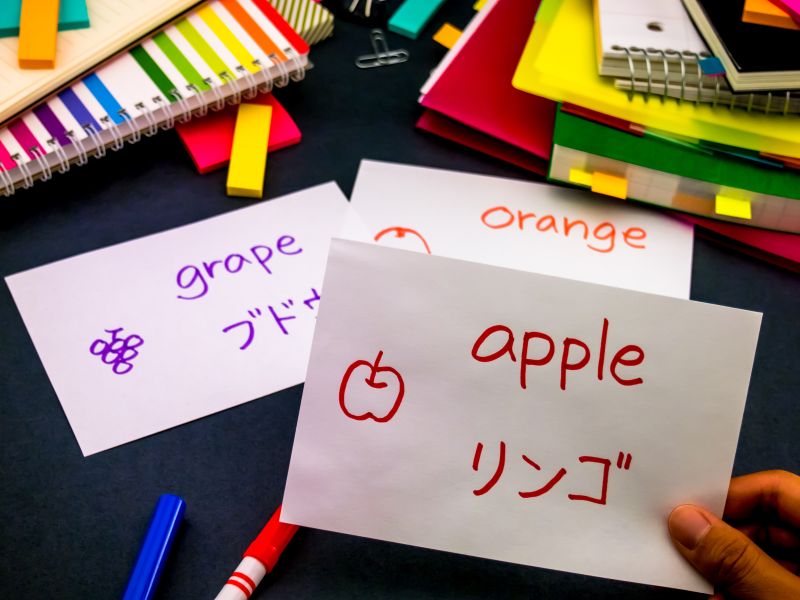
Should second-language learning be compulsory? A new report thinks so. Image: © eikotsuttiy- stock.adobe.com
<h2><span data-contrast="auto">Learning a second language should be compulsory for ākonga in Years 7 to 10 in Aotearoa New Zealand, says a new report. </span><span data-ccp-props="{}"> </span></h2>
<p><span data-contrast="auto">This policy would bring us in-line with many other OECD countries who have compulsory language learning such as Australia, Britain, the United States, Canada, Singapore and South Africa.</span><span data-ccp-props="{}"> </span></p>
<p><a href="https://www.schoolnews.co.nz/latest-print-issue/" target="_blank" rel="noopener"><b>Read the latest print edition of <em>School News</em> online HERE.</b></a></p>
<p><span data-contrast="auto">Titled </span><i><span data-contrast="auto">Language Learning for New Zealand’s Future, </span></i><span data-contrast="auto">the report recommends that three to four hours per week of a second language become a core requirement for students. The recommendations come following a forum hosted by the University of Auckland earlier this year in collaboration with the New Zealand Chinese Language Week Trust and the New Zealand Association of Language Teachers. More than 100 educators, language experts, business leaders, government officials and youth voices gathered to address a long-term decline in second-language learning. </span><span data-ccp-props="{}"> </span></p>
<p><strong>Related <em>School News</em> story: <a href="https://www.schoolnews.co.nz/2025/08/rising-demand-for-indian-language-classes-at-school/" target="_blank">Rising demand for Indian language classes at school</a></strong></p>
<p><span data-contrast="auto">The absence of a formal mandate in the curriculum, and the fact that foreign languages don’t count towards literacy requirements for UE means fewer students are learning languages. </span><span data-ccp-props="{}"> </span></p>
<p><span data-contrast="auto">“New </span><span data-contrast="auto">Zealanders are missing out on the cognitive, cultural and economic advantages that come with learning a second language that cannot simply be replaced by AI and auto-translation,” reads the report. </span><span data-ccp-props="{}"> </span></p>
<p><span data-contrast="auto">The report states that advantages of second language learning include better memory, problem-solving and literacy; intercultural competence and global participation. </span><span data-ccp-props="{}"> </span></p>
<p><strong>Related <em>School News</em> story: <a href="https://www.schoolnews.co.nz/2025/07/are-ai-detection-tools-biased-against-english-language-learners/" target="_blank">Are AI detection tools biased against English language learners?</a></strong></p>
<p><span data-contrast="auto">It also recommends that pathways become differentiated to reflect our diverse learner bases, including heritage speakers, native speakers and true second language learners; increasing teacher supply and professional development; establishing a comprehensive languages policy; strengthening distance learning models; and using AI as a key digital tool. </span><span data-ccp-props="{}"> </span></p>
<p><span data-contrast="auto">Juliet Kennedy, President of the New Zealand Association of Language Teachers, says “Languages is the only one of eight learning areas in the curriculum that are not a core requirement. This education policy gap is costing New Zealand academically, culturally and economically.</span><span data-ccp-props="{}"> </span></p>
<blockquote>
<p><span data-contrast="auto">“Language learning makes students smarter — boosting literacy, problem solving and academic performance across the board. It fosters cultural identity and belonging, and it strengthens New Zealand’s ability to succeed in global trade, diplomacy and business. We cannot afford to fall further behind.”</span><span data-ccp-props="{}"> </span></p>
</blockquote>
<p><span data-contrast="auto">Dr Erik Lithander, deputy-vice chancellor of strategic engagement at the University of Auckland adds that “Language is a way to connect local communities to global opportunities. We need to restart national conversations about language policy and push for dedicated curriculum space.”</span><span data-ccp-props="{}"> </span></p>
<p><span data-contrast="auto">In 2018, Nikki Kaye, former National education spokesperson introduced a bill to make second language learning compulsory for primary and intermediate school students. The bill would have required schools to teach one of ten undecided “priority” languages, with Te Reo Māori and New Zealand Sign Language likely to have been included. Despite bipartisan support from Labour, ACT and Greens, the bill was recommended not to progress in 2021 by Labour members on the education and workforce select committee, and it seemed to have been deprioritised by National in 2023. </span><span data-ccp-props="{}"> </span></p>

EXCLUSIVE: Teachers used to be paid two to three times more than minimum wage workers,…
After an “overwhelming” vote to reject the latest Government offer, secondary school teachers will begin…
A new entitlement aimed to improve access to learning support coordinators for schools with students…
Educators have raised questions about the Ministry of Education’s new secondary school subjects, set to…
Professional learning and development (PLD) for teachers needs to be higher impact for teachers and…
Students displayed increasing AI literacy when explicitly asked to engage with the technology for their…
This website uses cookies.